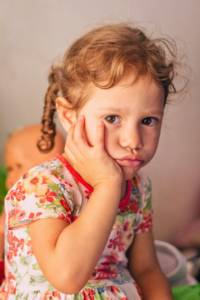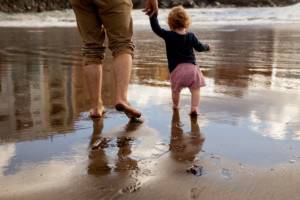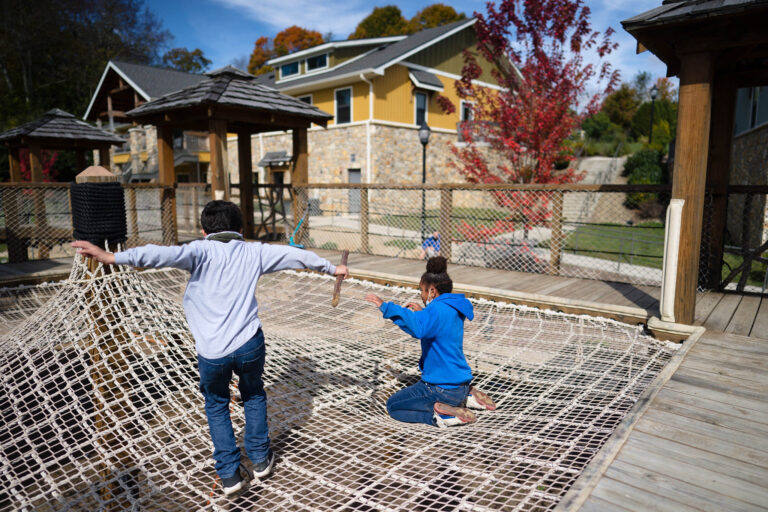It is safe to say that the current COVID 19 pandemic has taught everyone something new about themselves and the world around us. A few months back, you might not have known how long you could parcel out one 12 pack of toilet paper. You probably didn’t know that you could manage being a stay at home parent, homeschool teacher, hospital grade cleaner, fitness coach, your family’s personal shopper, and full-time work from home employee all at the same time. You likely didn’t know how mentally strong you’d have to become to combat the extra daily stresses that the Coronavirus has brought into your world.
Trauma changes behavior.
In any foster care training, the phrase “Trauma changes behavior” is echoed throughout the course in almost every lesson. The truth is children who come into foster care have lived through traumatic situations, whether this be physical abuse, neglect, a parent battling substance abuse, or many other possible unsafe situations. Even though many of us may never experience these situations ourselves, our current pandemic-induced lifestyle gives us a glimpse into the trauma impacted brain of a child. When the store shelves seem emptier than before, we find ourselves grabbing two packs instead of one. Like children from hard places who often hide food and take too much, there’s something in us that says, “This supply may not last.” Just when we think we’ve found our “new normal,” something changes and our bodies are overwhelmed with feelings of dysregulation from fear of the unknown.
 For littles in foster care who question everything their caregiver does and seem to dysregulate on a dime, the unknown is a constant. Our tempers trigger quicker because it seems that the rules are constantly changing around us. What was “essential” yesterday is closed today. Like children learning a new normal, our bodies struggle through the recent changes. Those feelings of peace that a schedule brings dissipate. Even though these children are moved to a new home that is safe and has all needed daily provisions, they still struggle. Like a child sucked into the whirlwind of foster care, we have been removed from the known and thrown into a new, ever-changing routine. We have lost all sense of control and have chronic feelings of loneliness and fear.
For littles in foster care who question everything their caregiver does and seem to dysregulate on a dime, the unknown is a constant. Our tempers trigger quicker because it seems that the rules are constantly changing around us. What was “essential” yesterday is closed today. Like children learning a new normal, our bodies struggle through the recent changes. Those feelings of peace that a schedule brings dissipate. Even though these children are moved to a new home that is safe and has all needed daily provisions, they still struggle. Like a child sucked into the whirlwind of foster care, we have been removed from the known and thrown into a new, ever-changing routine. We have lost all sense of control and have chronic feelings of loneliness and fear.
The loneliness of foster care.
For foster families parenting children from hard places, the loneliness often begins the moment they bring new children into their homes. In America, the average length of a foster parent’s journey is one year or one placement. Over 50% of foster parents stop fostering before their license has reached its first birthday. Like many today who have been tossed around by the waves of this pandemic, many foster parents find themselves washed up on a deserted island in their fostering journey. The feelings of loneliness and isolation are not rooted in foster care itself, but rather the lack of understanding of those outside of the foster care world.
The answer of community.
 The solution to pulling foster families off of deserted islands and battling their seclusion is very evident in the world around us right now. The solution is community. Every day during this struggling time, we see examples of the community around us stepping up and building up people on the front lines. They are doing the hard work and lifting up those who are overwhelmed. Whether it’s businesses stepping up to give free meals to families, seamstresses crafting cloth masks for medical staff, or a lone man spending the last of his savings to fill up the gas tanks of local nurses, people are stepping up to serve one another.
The solution to pulling foster families off of deserted islands and battling their seclusion is very evident in the world around us right now. The solution is community. Every day during this struggling time, we see examples of the community around us stepping up and building up people on the front lines. They are doing the hard work and lifting up those who are overwhelmed. Whether it’s businesses stepping up to give free meals to families, seamstresses crafting cloth masks for medical staff, or a lone man spending the last of his savings to fill up the gas tanks of local nurses, people are stepping up to serve one another.
The truth is not everyone is called to be a foster parent. But, everyone can find their place in the foster care community. Pulling our foster families and children in foster care off the islands and back into our communities will help alleviate the foster care pandemic that swirls around them.
To find out more about how you can support foster care families in your area, please visit fosteringcommunities.org.



